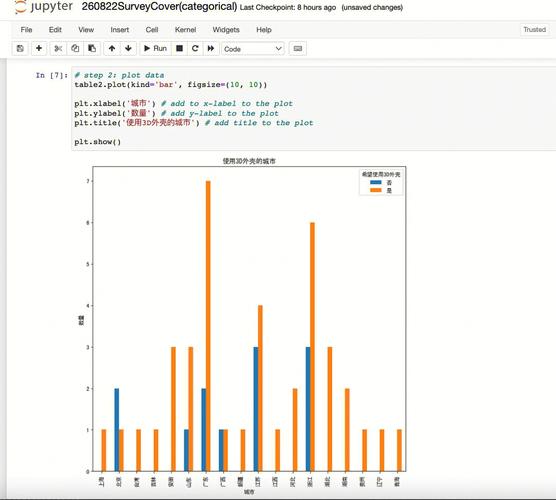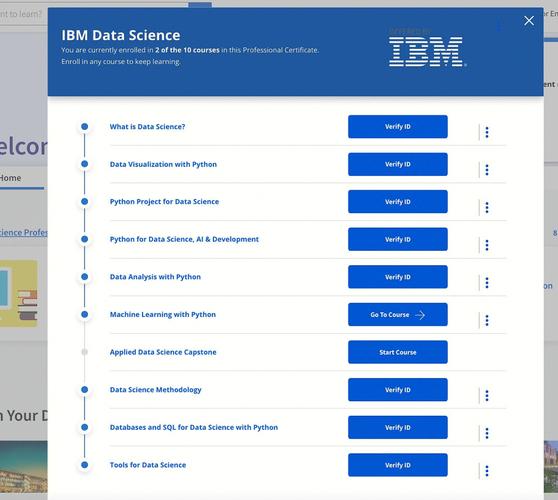Python
深色版本
1import pandas as pd23# 加载数据4df = pd.read_csv('financial_data.csv')56# 查看数据的前几行7print(df.head())步骤 2: 数据清洗
数据清洗是确保分析准确性的重要步骤。你需要处理缺失值、异常值、数据类型错误等问题。
Python
深色版本

1# 处理缺失值2df.dropna(inplace=True) # 删除含有缺失值的行34# 检查数据类型5print(df.dtypes)67# 强制转换数据类型8df['Close'] = df['Close'].astype(float)步骤 3: 数据分析
使用Pandas进行数据分析,包括计算统计指标、趋势分析、相关性分析等。
Python
深色版本

1# 计算描述性统计信息2print(df.describe())34# 计算收盘价的平均值5average_close_price = df['Close'].mean()6print(f"Average Close Price: {average_close_price}")78# 计算收盘价和交易量之间的相关性9correlation = df['Close'].corr(df['Volume'])10print(f"Correlation between Close Price and Volume: {correlation}")步骤 4: 数据可视化
使用Matplotlib库来可视化数据,这有助于直观地理解数据模式和趋势。
Python
深色版本
1import matplotlib.pyplot as plt23# 绘制收盘价的时间序列图4plt.figure(figsize=(14, 7))5plt.plot(df['Date'], df['Close'])6plt.title('Closing Price Over Time')7plt.xlabel('Date')8plt.ylabel('Closing Price')9plt.xticks(rotation=45)10plt.tight_layout()11plt.show()1213# 绘制成交量的直方图14plt.figure(figsize=(10, 5))15plt.hist(df['Volume'], bins=50, color='blue', alpha=0.7)16plt.title('Volume Distribution')17plt.xlabel('Volume')18plt.ylabel('Frequency')19plt.show()步骤 5: 报告撰写
将你的分析结果和图表整合到一份报告中。你可以使用Markdown、Jupyter Notebook或是专业的报告编写工具如LaTeX来制作报告。
在报告中,你应该包括:
数据源和数据预处理的描述主要的分析结果和发现图表和可视化的解释结论和建议示例代码整合Python
深色版本
1import pandas as pd2import matplotlib.pyplot as plt34# 数据加载5df = pd.read_csv('financial_data.csv')67# 数据清洗8df.dropna(inplace=True)9df['Close'] = df['Close'].astype(float)1011# 数据分析12average_close_price = df['Close'].mean()13correlation = df['Close'].corr(df['Volume'])1415# 数据可视化16plt.figure(figsize=(14, 7))17plt.plot(df['Date'], df['Close'])18plt.title('Closing Price Over Time')19plt.xlabel('Date')20plt.ylabel('Closing Price')21plt.xticks(rotation=45)22plt.tight_layout()23plt.show()2425plt.figure(figsize=(10, 5))26plt.hist(df['Volume'], bins=50, color='blue', alpha=0.7)27plt.title('Volume Distribution')28plt.xlabel('Volume')29plt.ylabel('Frequency')30plt.show()3132# 输出分析结果33print(f"Average Close Price: {average_close_price}")34print(f"Correlation between Close Price and Volume: {correlation}")
通过上述步骤,你可以使用Pandas和Matplotlib有效地进行金融数据分析并制作专业报告。记得根据实际数据调整代码中的细节,如数据文件路径、列名等。




